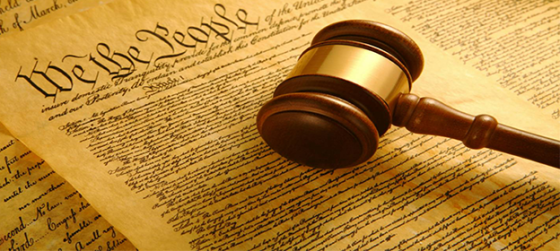
We are often told that the constitution, our constitution, is the epitome of our (all of us) ideals, values and aspirations. By this, it is assumed, at least, that the ideas of every recognisable unit of our polity as to how to structure and deploy government is represented and reflected in the Constitution; and, subsequently, in the laws of the polity.
According to Marx, however, no set of ideas (values, ideals and aspirations) has ever reflected the true ideas of all the recognisable units of the polity. Rather, “the ruling ideas of every epoch in a polity are the ideas of the ruling class of that epoch.”
In every period in the history of polities, there has only been one ruling class. This ruling class may have several departments; but it is still the ruling class. The ruling class, according to classical Marxist theory, is in constant struggle with the class of the ruled, the oppressed. The ruling class, the theory continues, is the class that owns and controls the resources and the other factors of production in the polity. The other class, the ruled, are nothing but a factor of production – labour – in the hands of the ruling class to used. How does this analytic play out in the making of constitutions?
Well, let’s begin by saying that constitutions are made up of big ideas. Second, big ideas are a product of big thinking. Third, by the very nature of the roles that the classes play, the habit of ‘thinking big’ becomes a luxury. Fourth, by the nature of the relationship and the respective roles of the classes, only the ruling class (call them the bourgeoisie) could afford the luxury of thinking big. The class of the ruled (call them the proletariat), on the other hand, is preoccupied with the habitual thoughts of the next meal (the source of strength for the next day’s labour).
Therefore, to the extent that the constitution is a set of ideas put together and ascribed the status of supreme law, the constitution of every polity (and the entire legal system which rests on it) in every era becomes nothing but a bundle of the ideas (values, ideals and aspirations) of only the ruling class of that era. This is true on both the micro and the macro levels. On a micro level, for instance, the ideas expressed in the 1992 Constitution as law are nothing but the ideas of the ruling class of the era – the PNDC.
On a macro level, take the idea that governmental power should be separated into 3 departments, for example. Separation of powers is nothing but a parochial arrangement between the various departments of the ruling class – the monarch, the MP and the judges – as to how to share power and harmonise the relationship between and among themselves and themselves alone. Separation of powers does not involve the people. Rather, the people are alienated and, in order to keep them at bay, pacified by another mechanism – elections.
This mechanism will be the subject of our next discussion.